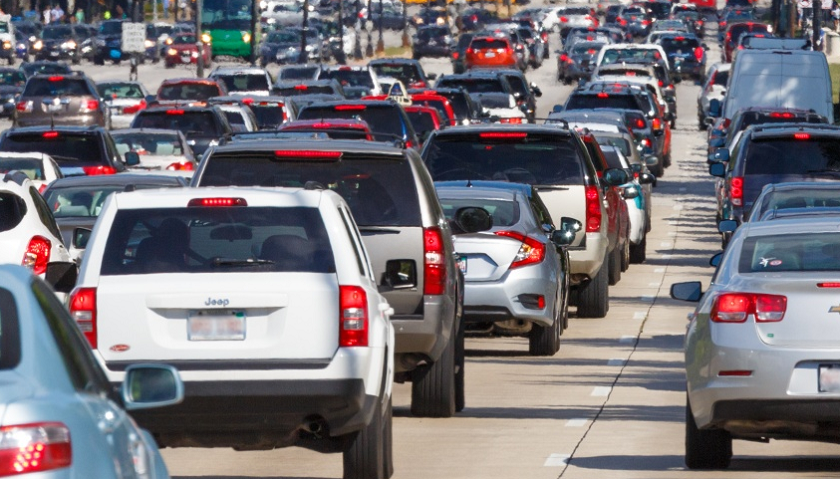Conservative think tank Beacon Center of Tennessee has created a transit plan for Nashville that it says would serve all drivers in the near future while not raising taxes or requiring a referendum.
The plan is available here.
“Proponents of the Let’s Move Nashville light-rail plan argued that an alternative plan would likely take years to develop, with some even suggesting as high as another 10 years, making approving the plan imperative,” Beacon Center said. “Luckily, voters disagreed, knowing better alternatives existed.”
The plan had its genesis from a forum called Off Track: What’s Wrong with Nashville’s Transit Plan & What We Should Do Instead where experts reviewed the proposed plan and offered alternative solutions, policy coordinator Ron Shultis wrote for Beacon Center.
For Metro Nashville, Beacon proposes:
- Build an adaptive traffic control system (ATCS) that enables traffic signals to immediately respond to traffic demand in real time.
Nashville’s last countywide optimization project in 2016 reduced travel times by 14%. The Federal Highway Administration recommends recalibrating lights every 3-5 years unless there are major changes earlier. Beacon Center says ATCS has helped Los Angeles cut travel time by 12% and increase speeds by 16%.
- Eliminate government bans on private transportation companies’ ability to compete and innovate, particularly shuttle companies.
Companies like Via Transportation, Inc., provide a new alternative between ridesharing and public transit by creating dynamic shuttle routes based upon user demand. Metro Nashville limits private shuttle companies from transporting more than 15 passengers and requires a license with a government pre-approved route.
Beacon Center also mentioned the city should avoid regulating transportation companies like Bird rental scooters. The scooter ban hurts the availability of first mile/last mile transportation options.
- Conduct a comprehensive review of existing bus routes, and outsource service to lower demand areas and routes to private ride-sharing companies.
Beacon Center suggests reviewing Metropolitan Transit Authority ridership on current bus routes and times so public-private partnerships may offer “subsidized on-demand ridesharing services for areas or routes that are not financially sustainable for permanent bus routes. This happened in Dallas, which partnered with Uber.
- Enact reasonable time-based restrictions on right of way closures to lessen the effects of construction on traffic flow.
Cities often charge fees for a business to close right of ways. “However, Nashville’s permit to close lanes or entire streets is one of the cheapest for similarly sized cities, costing only $100 in the downtown area for up to five days and $20 per day thereafter, and has little restrictions on time.”
Beacon Center points to Indianapolis and Atlanta, where work or lane closures are not allowed during morning and afternoon rush hours and permit fees rise significantly per lane per day.
- Cease all corporate welfare handouts to companies seeking to relocate to Nashville, particularly the downtown Central Business District.
Beacon Center says using taxpayer-funded subsidies to lure companies in effect subsidizes the “cost of congestion” and affects existing residents.
“Congestion is the unfortunate consequence of prosperity and social and economic vitality. Therefore, while it is better to deal with the effects of congestion than live in an area that has none, the government should not seek to increase this cost on its existing citizens through direct corporate handouts and tax abatements.”
- Create and encourage an alternative work solutions program for Metro Nashville employees and provide resources to private companies looking to create similar opportunities for employees.
For the state, the Beacon Center urges:
- Install and manage ramp meter lights with a system-wide algorithm management system on freeway on-ramps.
Ramp meters are traffic signals placed on interstate on-ramps. According to the Federal Highway Administration, “ramp metering reduces overall freeway congestion by managing the amount of traffic entering the freeway and by breaking up platoons that make it difficult to merge onto the freeway.”
- Divert through freight travel to I-840.
The Nashville Area Metro Planning Organization’s 2016 Regional Freight and Goods Movement Study estimated that approximately two-thirds of current truck travel is through freight, where the Nashville region is neither the origin nor destination.
- Create HOT lanes by converting HOV lanes or expanding roadways where possible through public-private partnerships.
HOT is an acronym for High-Occupancy Toll Lane. Basically, such a lane would be reserved for high-occupancy vehicles without charge, while other vehicles would pay a variable fee based on current demand.
I-95 in Miami saw average travel speeds increase 155% in the HOT lane and 75% in the general-purpose lanes from 2008 to 2011. HOT lanes also create additional revenue for ongoing maintenance and operations.




